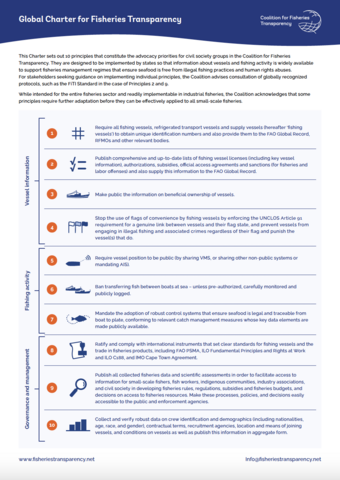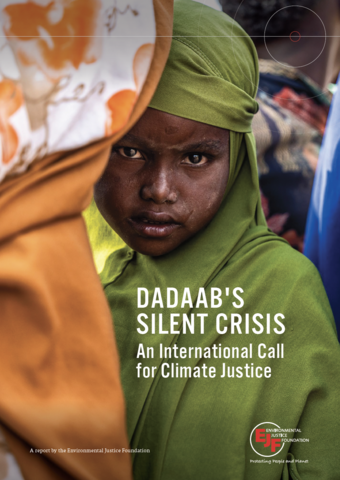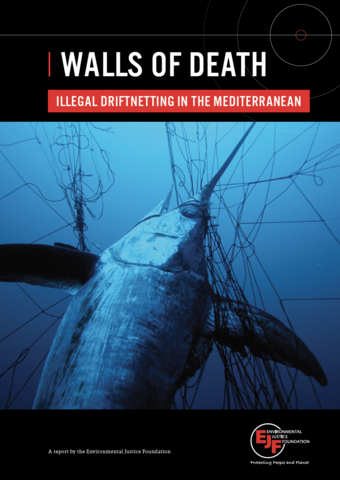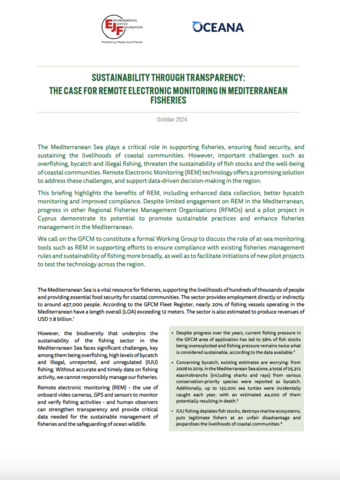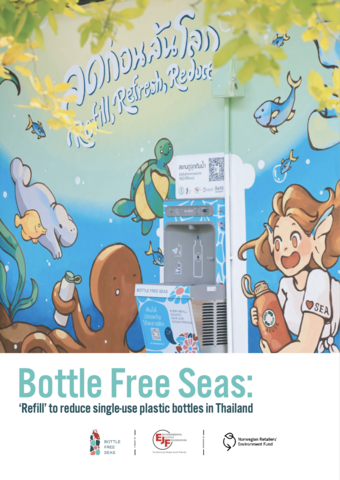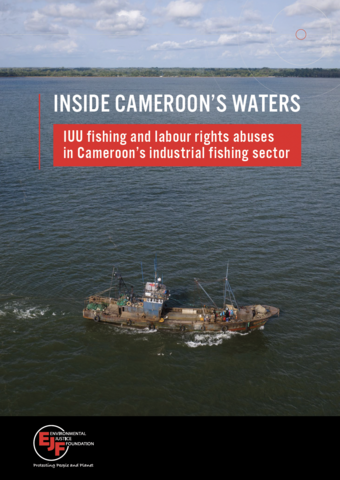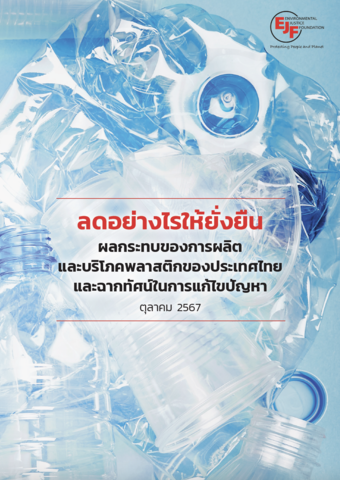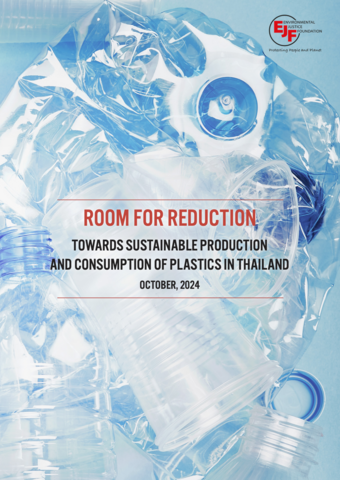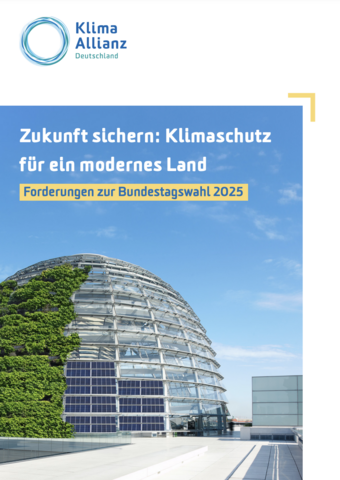Global Charter for Fisheries Transparency: The Global Charter comprises ten holistic, no-cost to low-cost measures for greater transparency in the global fishing sector to enable sustainable, legal, and ethical fisheries. These are practical steps which any state can take to ensure that fish and seafood are not associated with illegal fishing or human rights abuses.
Dadaab's silent crisis: an international call for climate justice: This report tells the stories of those on the frontlines of the climate crisis in Dadaab refugee camp, Kenya. These stories highlight the devastating impacts of the drought in the Horn of Africa and the link between global heating and forced displacement.
« Les murs de la mort » : La pêche illicite au filet dérivant en Méditerranée: Les filets dérivants sont une méthode de pêche indiscriminée consistant en des filets pouvant mesurer des dizaines de kilomètres, suspendus verticalement dans la colonne d'eau. Cette enquête a porté sur l'utilisation illégale et généralisée de filets dérivants par des navires marocains dans la mer d'Alboran, un point chaud de la biodiversité méditerranéenne.
«Cortinas de la muerte» : Pesca ilegal con redes de deriva en el Mediterráneo: Las redes de deriva son un método de pesca indiscriminado que consiste en redes que pueden medir decenas de kilómetros, suspendidas verticalmente en la columna de agua. Esta investigación examinó el extendido uso ilegal de redes de deriva por parte de buques marroquíes en el mar de Alborán, un punto caliente de la biodiversidad mediterránea.
‘Walls of death’: illegal driftnetting in the Mediterranean: Driftnets are an indiscriminate fishing method consisting of nets which can measure tens of kilometres, suspended vertically in the water column. This investigation examined the widespread illegal use of driftnets by Moroccan vessels in the Alboran Sea, a Mediterranean biodiversity hotspot.
Sustainability through transparency: the case for remote electronic monitoring in Mediterranean fisheries: Remote electronic monitoring (REM) and human observers can strengthen transparency and provide critical data needed for the sustainable management of fisheries and the safeguarding of ocean wildlife in the Mediterranean.
Bottle Free Seas: ‘Refill’ to reduce single-use plastic bottles in Thailand: The Bottle Free Seas project, initiated by EJF and funded by the Norwegian Retailers’ Environment Fund, is dedicated to reducing the use of single-use water bottles. We have achieved this through the installation and promotion of water refill infrastructure in Bangkok. This report outlines lessons learned and how the initiative can be replicated.
Inside Cameroon's waters: IUU fishing and labour rights abuses in Cameroon’s industrial fishing sector: Cameroonian fisheries face multiple threats, including illegal, unreported, and unregulated (IUU) fishing, which remains a tragic reality and negatively impacts marine and coastal ecosystems and the people who depend on them.
ลดอย่างไรให้ยั่งยืน ผลกระทบของการผลิต และบริโภคพลาสติกของประเทศไทย และฉากทัศน์ในการแก้ไขปัญหา: การผลิตพลาสติกของประเทศไทยในปัจจุบันอยู่ในระดับที่ไม่ยั่งยืน รายงานฉบับนี้นำเสนอฉากทัศน์การลดการผลิตพลาสติกที่สังคมไทยมีโอกาสบรรลุได้ โดยมีเป้าหมายนำเสนอข้อมูลที่จะเป็นประโยชน์ต่อรัฐบาลไทยในการเจรจาเพื่อจัดตั้งสนธิสัญญาพลาสติกโลกที่กำลังจะเกิดขึ้น
Room for Reduction: Towards sustainable production and consumption of plastics in Thailand: Thailand’s current levels of plastic production and consumption are unsustainable. This policy brief details how sustainable plastic production and consumption could be achieved in Thailand, to inform the Royal Thai Government's engagement at upcoming plastics talks.
Zukunft sichern: Klimaschutz für ein modernes Land – Forderungen zur Bundestagswahl 2025: Das Positionspapier zur Bundestagswahl 2025 soll sicherstellen, dass die Fortschritte beim Klimaschutz aus der aktuellen Legislaturperiode weitergeführt und beschleunigt werden und genug Geld für Klimaschutzmaßnahmen bereitsteht.
Protecting our Oceans by Enforcing EU Nature Laws: Although marine protected areas (MPAs) can be powerful tools in protecting and restoring Europe's seas, they are underutilised due to weak enforcement and management, in violation of EU nature protection laws. Their effective management is critical for biodiversity, climate and fisheries.
